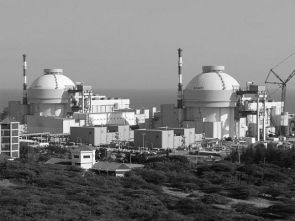 India has said it is committed to implementing the highest safety standards at its nuclear power plants as it seeks to harness the benefits of atomic energy to meet its growing energy requirements.
India has said it is committed to implementing the highest safety standards at its nuclear power plants as it seeks to harness the benefits of atomic energy to meet its growing energy requirements.
"Nuclear power remains an important option not only for countries with existing nuclear programmes, but also for developing countries with growing energy requirements," visiting BJP MP Shatrughan Sinha said in his statement to the UN General Assembly on the 2012 annual report of the International Atomic Energy Agency.
India has co-sponsored the draft resolution on the IAEA report.
Sinha said India is committed to implementing the "highest standards for the safety of Indian nuclear power plants and the associated fuel cycle facilities."
The country would also continue to participate and assist the IAEA Secretariat in its endeavour to enhance nuclear safety through various measures.
Sinha stressed that India is committed to harnessing the benefits of nuclear energy for electricity production while ensuring that highest priority is given to nuclear safety and security.
"India will need to rapidly raise the energy production to meet its growing energy requirements to achieve its developmental goals. The energy resources at our disposal make it imperative for us to consider all energy options," he said at the UNGA on November 5.
He said nuclear energy has a crucial role to play in achieving objectives of India’s sustainable economic growth.
The country is also extensively engaged in development of nuclear technologies in fields extending beyond nuclear power, including isotope applications for improved crop varieties, crop protection and post-harvest technologies, radio-isotope applications for diagnostic and theraupetic uses in healthcare and technologies for safe drinking water.
He pointed out that currently there are 21 Nuclear Power Plant units operating in India and construction of four units of 700 MWe pressurized heavy-water reactors is under progress at the Kakrapar and Rawatbhata sites in Rajasthan.
India has also setup two Voda Voda Energo Reactor based NPPs at Kudankulam in Tamil Nadu, with the co-operation of Russia.
The power would be further raised to 1000 MWe in stages, increasing the nuclear power contribution in the country to about 5800 MWe. India is also setting-up 500 MWe Prototype Fast Breeder Reactor at Kalpakkam.
With major equipment such as main vessel and safety vessel, primary-secondary sodium heat exchangers, steam generators, other reactor auxiliaries having been erected, construction at the site is expected to be completed this year, Sinha told the UNGA.
He underscored that the nuclear power programme in India is oriented towards maximising the energy potential of available uranium resources and the utilisation of its large Thorium reserve.
"We believe that available global uranium resources cannot sustain the projected expansion of nuclear power in the coming decades, without adopting the closed fuel cycle approach and subsequent adoption of thorium fuel cycle," he said.
India continues to carry forward intense development of thorium fuel cycle based technologies for demonstration in its advanced heavy-water reactor programme.
"We feel that the IAEA should take all necessary measures to allay misapprehensions in the public and member states about the safety of nuclear power plants taking into account the current advances in relevant design and technology areas. We would also like to encourage the IAEA to make concerted efforts for free flow of latest information, technology and equipment pertaining to nuclear safety among the member states," he said.
Sinha pointed out that the threat of nuclear terrorism is one of the pressing challenges facing the international community.
"Responsible national action and effective international cooperation are therefore required for strengthening nuclear security to prevent vulnerable nuclear material falling into hands of non-state actors," he added.











 © 2025
© 2025